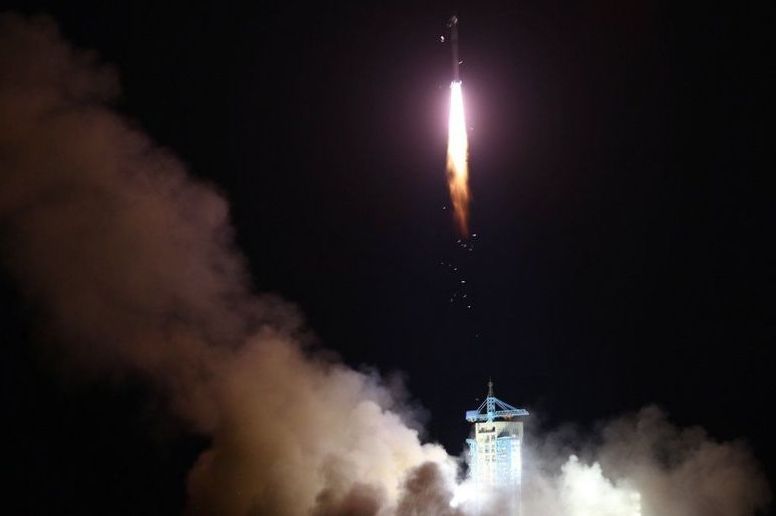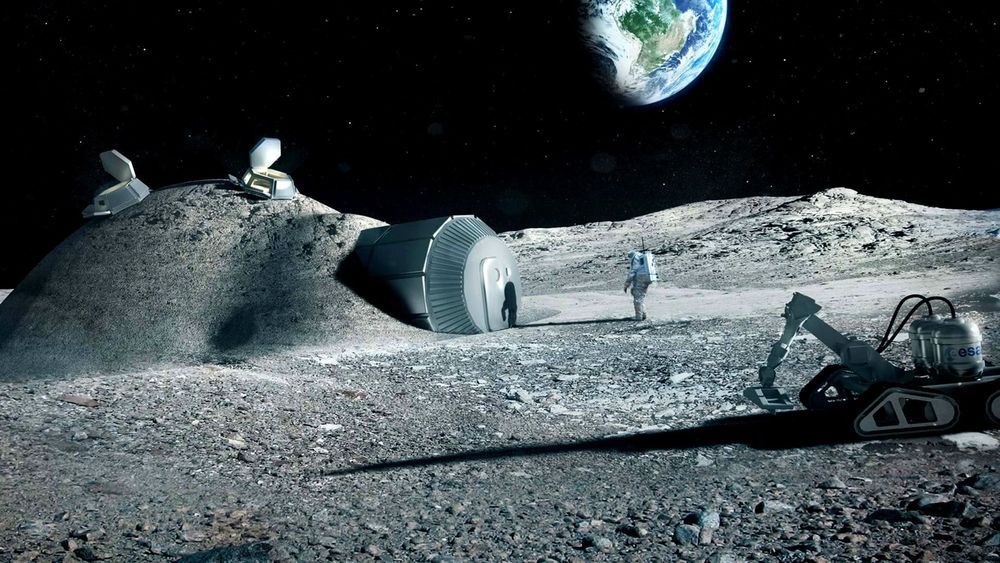Unlike Earth’s northern & southern auroras, Jupiter’s auroras appear to behave independently of each other. Combining data from Chandra, NASA’s Juno mission, & ESA’s XMM-Newton observatory could help explain why!
Category: space – Page 907
The Forgotten Astronaut: Michael Collins and Apollo 11
A short documentary revolving around Michael Collins and his experience during the Apollo 11 moon landing mission.
Compiled from archival footage and interviews.
NASA Astronauts Celebrate the 50th Anniversary of the Moon Landing On Board the Space Station
As the first human beings stepped onto the Moon, the whole world watched in awe. Now, the #Apollo50th anniversary is being celebrated by those on AND off the world. NASA Astronauts Christina Koch and Nick Hague are celebrating on board the International Space Station. More: https://youtu.be/CIQMsI87jmA


China #1 in quantum entanglement, teleports object 300 miles
Science, Space & Robotics News | Posted: 9 hours, 42 mins ago.
Comment | Email to a Friend | Font Size: AA.


Zooming on the Orion Nebula
The Orion Nebula is a diffuse nebula situated in the Milky Way, being south of Orion’s Belt in the constellation of Orion. It is one of the brightest nebulae, and is visible to the naked eye in the night sky. M42 is located at a distance of 1,344 ± 20 light years and is the closest… This wide-field view of the Orion Nebula (Messier 42).
In one of the most detailed astronomical images ever produced, the NASA/ESA Hubble Space Telescope is offering an unprecedented look at the Orion Nebula. This turbulent star-formation region is one of astronomy’s most dramatic and photogenic celestial objects.
This crisp image reveals a tapestry of star formation, from the dense pillars of gas and dust that may be the homes of fledgling stars to the hot, young, massive stars that have emerged from their gas-and-dust cocoons and are shaping the nebula with their powerful ultraviolet light.
The new picture reveals large-scale structures never seen before, according to C. Robert O’Dell of Vanderbilt University in Nashville, USA “Only with the Hubble Space Telescope can we begin to understand them,” O’Dell said.
In a mosaic containing a billion pixels, Hubble’s Advanced Camera for Surveys (ACS) uncovered 3,000 stars of various sizes. Some of them have never been spied in visible light. Some are merely 1/100 the brightness of stars seen previously in the nebula.

Coming This Week: Episode 1 of NASA Explorers: Apollo
Get ready to listen to the sounds of Apollo! 🌑🎶.
Get ready to listen to the sounds of Apollo! 🌑 🎶
In this episode of NASA Explorers: Apollo, hear what 50 years of lunar exploration sounds like, just in time for the 50th anniversary of the first Moon landing. You can binge the whole series now: nasa.gov/nasa-explorers-apollo